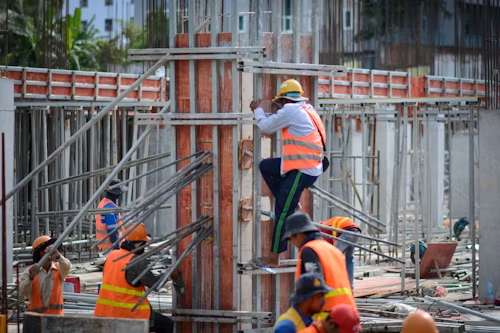
WASHINGTON, D.C. — Labor and employment policy in the United States is facing its most dramatic overhaul in decades, according to Littler’s Workplace Policy Institute, which released its 2025 Labor Day Report outlining six key issues in flux.

“In less than nine months, the new administration has transformed more than six decades of labor and employment policy, and there is no indication that the pace will slow. As key oversight and enforcement agency positions are filled, we anticipate further upheaval,” said Shannon Meade, WPI’s executive director, alongside WPI co-chairs Alex MacDonald and Jim Paretti.
The changes under President Donald Trump’s second administration are reshaping the employer-employee landscape. Some measures provide relief to employers, but Littler notes that not all changes cut in management’s favor. Meanwhile, “blue states” are actively passing counter-legislation to reinforce worker protections.
Days after retaking office, President Trump dismissed officials from the U.S. Equal Employment Opportunity Commission (EEOC) and National Labor Relations Board (NLRB), leaving both agencies without a quorum. Several former officials have since sued, challenging the legality of their removals and raising constitutional questions about presidential power.
“Ultimately, the Court will have to decide whether these removals were lawful. And if they were, ‘independent’ agencies may be a thing of the past. Instead of exercising independent ‘expertise,’ they may simply track the policy priorities of the incumbent president,” the report warned.

Despite a wave of union organizing efforts, membership density fell to record lows in 2024. States like Rhode Island are passing laws restricting “captive audience” meetings, limiting employers’ ability to discourage union activity.
“These laws restrict employers’ ability to share their views and express themselves freely in the workplace,” Littler wrote. At the federal level, the proposed Faster Labor Contracts Act could accelerate bargaining timelines, a move that worries employers. “The bill would for the first time allow outsiders to compel employers to agree to specific bargaining agreements,” Littler cautioned.
Trump has ordered federal agencies to aggressively dismantle diversity, equity and inclusion (DEI) programs, raising uncertainty for private employers.
“How these efforts fare in the courts, how aggressively the administration continues to press the issue, and what various federal government agencies do to advance this agenda — and what states do in response — all remain to be seen,” the report said.
The authors warned: “Employers in all sectors that maintain DEI initiatives are advised to consult with counsel and stay current on developments.”
The overtime threshold, raised under Biden in 2024 but vacated by a federal judge, remains unresolved. Littler questioned whether the Trump administration will keep the 2019 standard or attempt an increase.
At the same time, the Department of Labor signaled it is preparing a new independent contractor rule, expected to broaden who can be classified outside traditional employment. “Blue states are responding … by adopting standards more likely to result in traditional employee status,” Littler said.
Employers should brace for more I-9 audits and workplace raids, Littler warned.
.avif)
“Tighter enforcement measures will require greater vigilance from human resource departments in completing and maintaining employment authorization documentation for employees. At the same time, employers may face greater difficulty hiring talent outside the United States given stricter interpretations of immigration processing rules and procedures,” the report said.
Economists caution that reducing immigration could worsen labor shortages in industries like construction, healthcare, and long-term care.
While the Trump administration promotes deregulation and competitiveness in AI, states are enacting their own AI-related employment rules.
“For employers, this evolving patchwork of regulations raises important questions about risk, responsibility, and compliance in the age of AI,” Littler noted.
Industry leaders emphasize the need for flexibility. “A static AI policy will be outdated before the ink dries,” said the CEO of an AI software firm. “Treat it like a living playbook that evolves with the tech, the regulations, and the needs of your workforce.”
With policy shifts on multiple fronts, Littler says the pace of change is unlikely to slow. Employers must stay alert to both federal and state-level actions to avoid compliance risks. As the report underscores, the workplace legal landscape is in unprecedented flux, with outcomes that could reshape labor relations for years.
Originally reported by Ginger Christ in Construction Dive.